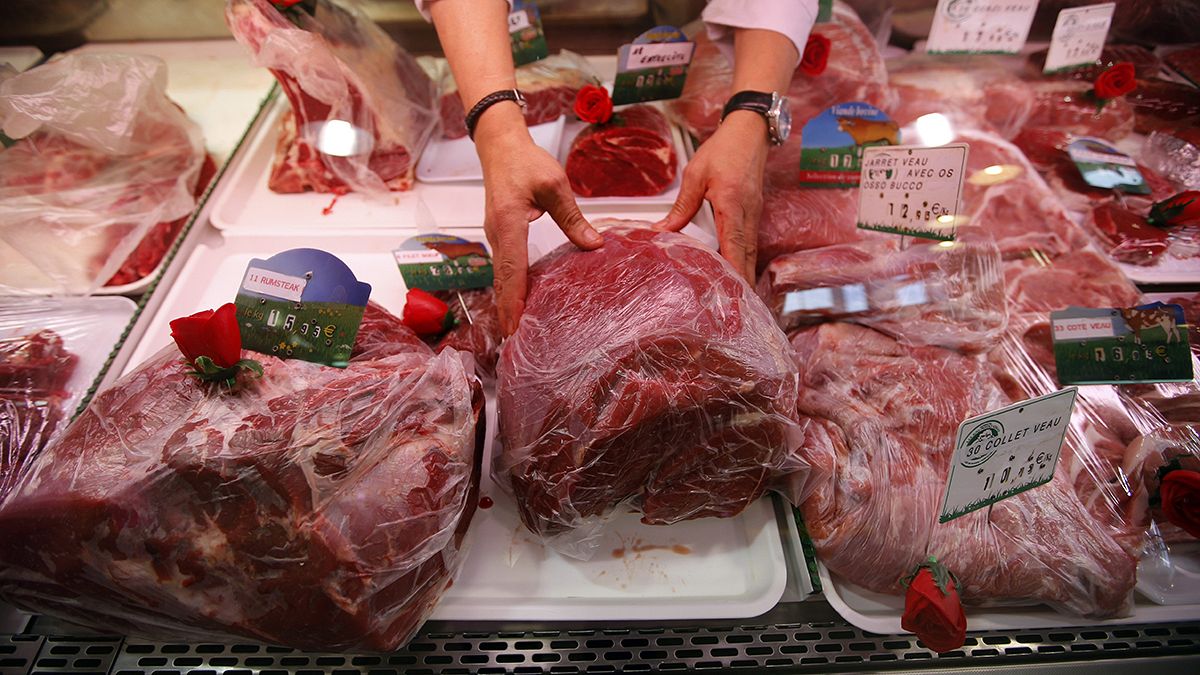A gust of panic over the food we eat blew across Europe with the release on Monday of a report by the International Agency for Research on Cancer
A gust of panic over the food we eat blew across Europe with the release on Monday of a report by the International Agency for Research on Cancer (IARC).
The agency placed red meat officially in the category of substances that probably cause cancers in people, and processed meats as cancer-causing.
We asked the World Health Organisation’s Doctor Kurt Straif about the report. In Lyon, France, working with around 20 colleagues, Straif’s research focus is on occupational and environmental risk factors for cancer.
Sandrine Delorme, euronews: “In what way do red meat and processed meats raise cancer risks? And which cancers are we talking about?”
Straif: “Processed meats were evaluated as belonging in Group 1, where we know there is a link with cancer in humans, especially colorectal cancer. In the case of red meat, its evaluation puts it in Group 2A, meaning a cancer-causing probability. Its indications were not as strong although there were clear indications that there is a link to colon cancer.”
The IARC identifies health hazards in five groups: carcinogenic, probably carcinogenic, possibly carcinogenic, not classifiable, and probably not carcinogenic.
euronews: “What level of meat consumption will raise our risk of getting cancer?”
Straif: “There was an approximately 18% increase in risk for every 50 gram portion of processed meats eaten daily. The risk is not as strong as from tobacco. Smoking is clearly linked to around 20 different cancers. Other risks are from exposure to asbestos or air pollution, for example.”
euronews: “France’s Agriculture Minister Stephane Le Fol has said, “I don’t want a report like this spreading panic among people.” Hasn’t the Cancer Research Agency (IARC) been quite alarmist with this report?”
Straif: “No, I don’t believe we are alarmist at all. We [the IARC research scientists] state clearly what we have evaluated and of course we have also quantified the risk. From that, it’s up the government [policy makers] or individuals to decide what to do with the information. It’s rather others that are alarmist, but we’re not.”
Hazard Group 1 includes cigarettes, alcohol and even sunlight. Risks involve multiple factors.
At a market in Lyon, we asked some shoppers if they feel what they eat is dangerous.
One woman told us: “No, and to prove it I’m still here. I’m 88!”
So for salted, cured or smoked meat lovers, what to do?
euronews: “Dr Straif, what’s your expert advice to avoid getting cancer?”
Straif: “It really depends on context. If it’s about environmental exposure, such as to air pollution, it’s really up to the government to do something. But if you’re looking at the habits of daily exposure, I think the most important thing really is to quit smoking, drink less alcohol, be physically active, avoid excess weight and maybe to eat less processed meat.”
The WHO’s International Agency for Research on Cancer in Lyon evaluated more than 800 meat and cancer studies from several continents.
